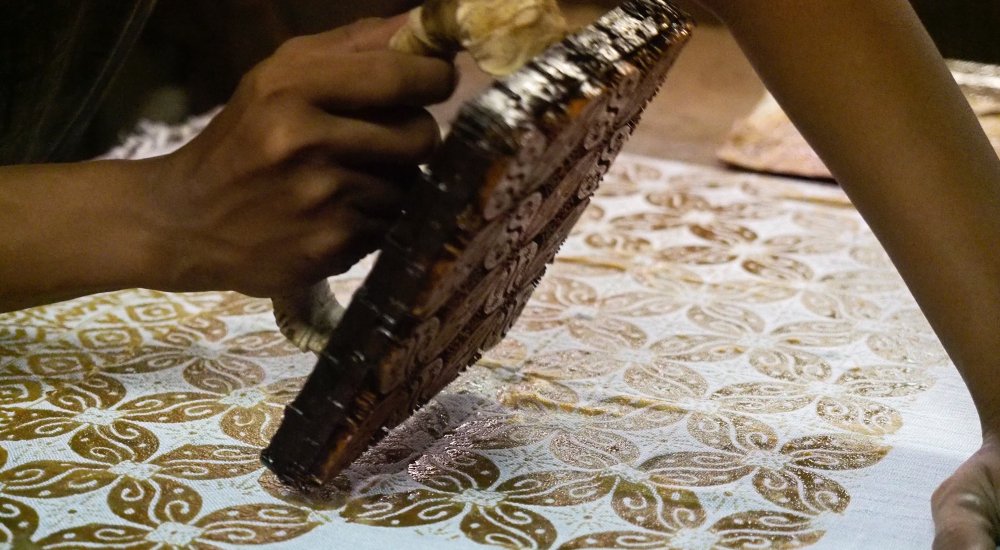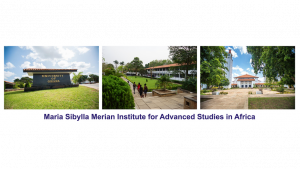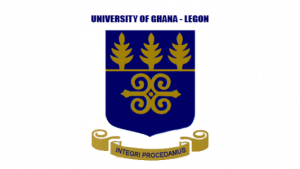MIASA/University of Ghana Interdisciplinary Fellow Group (IFG)

The Maria Sibylla Merian Institute for Advanced Studies in Africa (MIASA) is dedicated to research in the Humanities and Social Sciences. The overarching theme of MIASA is ‘sustainable governance’ from a genuine interdisciplinary and critical perspective, whereby ‘governance’ is understood in a wide sense, namely as the interplay of informal and formal rules for steering public affairs, embedded in historical, social, material and cultural practices of everyday life. Our main research axes are sustainable peace, sustainable democracy and sustainability transformation, but we are also interested in a wide range of intersectional sub-topics, such as landownership and acquisition, migration and mobility, restitution of colonially acquired cultural objects, African cities, human rights, and other related themes. MIASA is committed to reduce global asymmetries in knowledge production, to promote female scholarship and to bridge cultural divides. The institute offers time and space for supporting innovative academic research of top international quality. All MIASA fellowships are residential and mainly focus on onsite reflection, discussion and writing. In addition, MIASA facilitates networking and collaboration amongst leading researchers from Germany, Ghana, other parts of Africa and Europe and elsewhere in the world. The institute is located on the beautiful campus of the University of Ghana (UG) at Legon (Accra), and has been implemented in collaboration with the University of Freiburg, the Goethe University of Frankfurt, the German Institute for Global and Area Studies (GIGA) and the German Historical Institute Paris (GHIP). It is funded by the German Federal Ministry of Research, Technology and Space (BMFTR) with co-funding from the University of Ghana.
The present call is for proposals for an Interdisciplinary Fellow Group (IFG) on the topic of “Sustainable Governance” for the period from 1 February to 31 May, 2027. Analysing Sustainable Governance requires thematic focus and grounding, while applying a multi-scale analysis and local perspectives as well as considering global interconnections and historical experience. At MIASA we understand the concept of “Sustainable Governance” in a very broad way, and as covering both formal and informal rules, including practices established by non-state actors. We value non-normative concepts of sustainable governance, as well as knowledge generated from local daily practice. One of the major questions we are interested in at MIASA is: Which frameworks, rooted in local values and lived experiences, offer viable alternatives (or complements) to dominant paradigms of sustainable governance?
IFGs are MIASA’s central instrument for fostering original research on ‘Sustainable Governance’ and its connected thematic areas as mentioned above, which necessitates the input of experts from different academic fields and backgrounds. An IFG brings together a group of four fellows – ideally a mix of senior and junior fellows – for the duration of four months. Two of the fellows act as co-convenors. One of the two co-convenors is expected to be from the University of Ghana. IFGs are interdisciplinary and international.
The selection of IFGs is made by MIASA’s distinguished international Academic Advisory Board. The all-important selection criteria are the academic excellence and originality of the application, the composition of IFG members as well as their individual academic excellence, the interdisciplinarity of the group, its international character, and its contribution to the academic environment at MIASA and the University of Ghana. IFG members from successful applications become MIASA fellows with all the corresponding rights and obligations for the funding period (four months).
IFG composition
- An IFG brings together a group of 4 fellows, who become IFG members and will act as a team: 2 co-convenors and 2 additional members.
- Eligible as IFG co-conveners and members are both junior and senior fellows. Junior fellows are excellent young researchers who have successfully completed their doctorate by the time the fellowship agreement is concluded (at least three months before the beginning of the fellowship). Senior fellows are excellent researchers with a record of top-class research (usually demonstrated by publications) who hold positions such as senior lecturers or professors (or equivalent). Ideally, half of the IFG members should be junior or senior each.
- One of the two co-convenors must be affiliated with the University of Ghana.
- One IFG member must be affiliated with a German research institution/ university at the time of application.
- A good gender-balance is essential.
- A mix of different linguistic backgrounds is encouraged.
- The interdisciplinarity of the group is essential.
Steps for composing a group
- The main applicant (one of the two co-convenors) selects IFG members based on the above recommendations, including the second co-convener. Potential members can get in touch with the MIASA team for obtaining information about the detailed fellowship conditions.
- The main applicant submits the full application, indicating the names of the other co-convener and all IFG members, including their CVs and publication lists.
- The Academic Advisory Board (AAB) evaluates, among other selection criteria (see below), the academic excellence of each individual candidate.
- The AAB may request the replacement of individual candidates in case their profile is considered to be weak or not appropriate. In this case, as well as in the case that one (or more) candidates cannot accept the fellowship, IFG co-conveners can suggest one (or more) candidates as a replacement. The AAB has to approve these nominations after evaluation.
- In case one or several IFG members (or a co-convener) step down from the IFG after the selection, this person can be replaced following the same procedure. This does not affect the other dimensions of the IFG proposal, including the research programme submitted for the group.
- The selection of MIASA fellows (including IFG co-conveners and members) always has to be approved by the funders. In case of changes within the IFG (as mentioned above), this also has to be approved.
Fellowship conditions
- MIASA covers the fellows’ salary costs or the costs for a teaching replacement and paid directly to his/her home institution according to the funders’ guidelines of minimum and maximum amounts for fellowship compensations.
- Fellows without employment receive a monthly grant.
- For all fellows from outside Accra, MIASA provides an accommodation allowance of up to 1500€/month and reimburses travel costs at the beginning and the end of the fellowship. For MIASA fellows who come with family members to Accra, MIASA can provide a family allowance.
- A small contribution to support research undertaken at MIASA can be granted to the MIASA fellow upon application to MIASA directors (up to 1000 € per fellow for the 4-month fellowship).
- Each co-convener receives a “convener-allowance” of 200 €/month.
- MIASA fellowships are managed by the University of Freiburg, who is the funding recipient of the German Federal Ministry for Research, Technology and Space (BMFTR) for MIASA’s fellowship programme.
Opportunities and expectations
- Successful applicants become MIASA fellows with all the corresponding rights and obligations for the requested funding
- MIASA fellowships are residential fellowships and require being present at MIASA, University of Ghana, Legon campus. The maximum time of absence is 1/6 of the total duration of the fellowship, including archival or field research activities and conference participation, and need prior approval by the directors.
- A contribution to the academic life at MIASA and the University of Ghana is expected (including participating actively at MIASA’s public lecture series as well as at the weekly internal seminar, which bring together all MIASA fellows).
- IFG co-conveners are responsible for developing the IFG research project based on the application and in close consultation with the MIASA team (the MIASA directors and the MIASA coordinator).
- The funding recipient, i.e. the University of Freiburg, is fully responsible for dealing with all administrative and financial matters related to the fellowships, research costs and IFG events. All financial and administrative matters have to be dealt with according to the BMFTR-DLR Merian Centres Information Guidelines and the regulations for expenditure of funds of the University of Freiburg.
- One public conference is organised by the IFG in collaboration with MIASA and a department/ centre/ institute of the University of Ghana. The selection of conference guests, programme and timing need the prior approval of MIASA directors. The budget for this conference is covered by MIASA via the funding recipient, i.e. the University of Freiburg. All expenditures for the conference must be made according to the regulations of the University of Freiburg, Germany.
- Each fellow is expected to submit a fellow report within 4 weeks after the end of the fellowship.
- The two co-convenors are, in addition, expected to submit a final IFG report summarizing the activities and main research findings of the IFG. This report will be published on MIASA’s academic blog.
- One or more, individually or jointly written working papers, is expected to be published after the end of the IFG. Intellectual output of the IFG should also be reflected in reports or academic blog contributions. All presentations during the fellowship and all publications based on research conducted and results achieved during the fellowship must acknowledge MIASA and its sponsors, i.e. the German Federal Ministry for Research, Technology and Space as well as the University of Ghana.
Application dossier
Please respect formal requirements:
- Formatting: font Arial, 11 pt, line spacing 1.5, all margins 2.5 cm.
- Page limits may not be exceeded.
Applications must include the following information:
- Front page with general information (2 pages):
- Title, name (last, first), e-mail address, link to webpage.*
- Date of doctorate.*
- Current position/affiliation, institution and business address (Name of institution/city/country).*
- Research field.*
- Position within the IFG (IFG convener, IFG co-convener, IFG member).*
- Project title.
- Abstract of the IFG research project (max. 150 words).
- Project proposal (max. 5 pages):
- Project title (max. 50 characters)
- Abstract of the IFG project (150 words)
- Aims, theoretical framework and methodology of the project.
- Work and time plan, including planned academic events.
- Innovative potential, originality and relevance of the project.
- Added value of conducting research at MIASA and the University of Ghana as well as of doing the research as a team.
- Bibliographical references (max. 1 page in addition to the 5 pages of the proposal).
- Concept of how the group is composed and how it should work together. This point should mention the disciplinary backgrounds of IFG members as well as the countries in which IFG members have their institutional affiliation at the time of application. It should also comment on how academic exchange and collaboration between IFG members will be organised (max. 1 page).
- CV in tabular form (max. 2 pages for each candidate).
- Publication list highlighting the most important publications (max. 2 pages for each candidate).
* This information has to be provided for each fellow, including the co-conveners.
Proposals for an IFG on “Sustainable Governance” for the period 1 February – 31 May 2027 have to be submitted by 31 October 2025, 24:00 UTC, via email to miasa@act.uni-freiburg.de.
For questions, please do not hesitate to contact MIASA directors, Prof. Grace Diabah (GDiabah@ug.edu.gh) and Prof. Mamadou Diawara (diawara@em.uni-frankfurt.de), and/ or the MIASA academic coordinator, Dr. Agnes Schneider-Musah (agnes.schneider-musah@act.uni-freiburg.de).
Proviso: Fellowships are offered with the proviso that the Federal German Ministry of Research, Technology and Space (BMFTR) will grant funding for MIASA’s final phase from September 2026 until February 2030.


